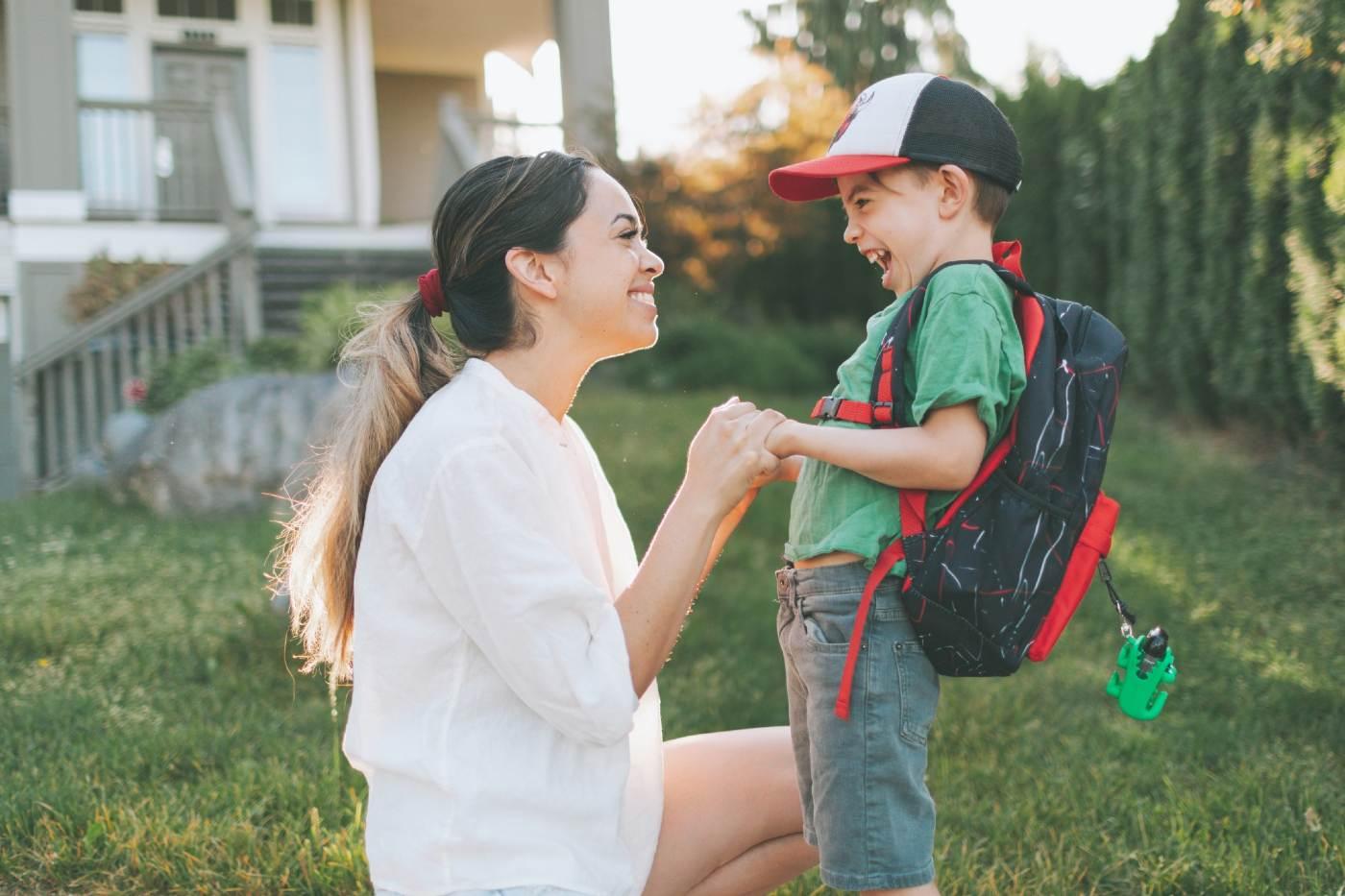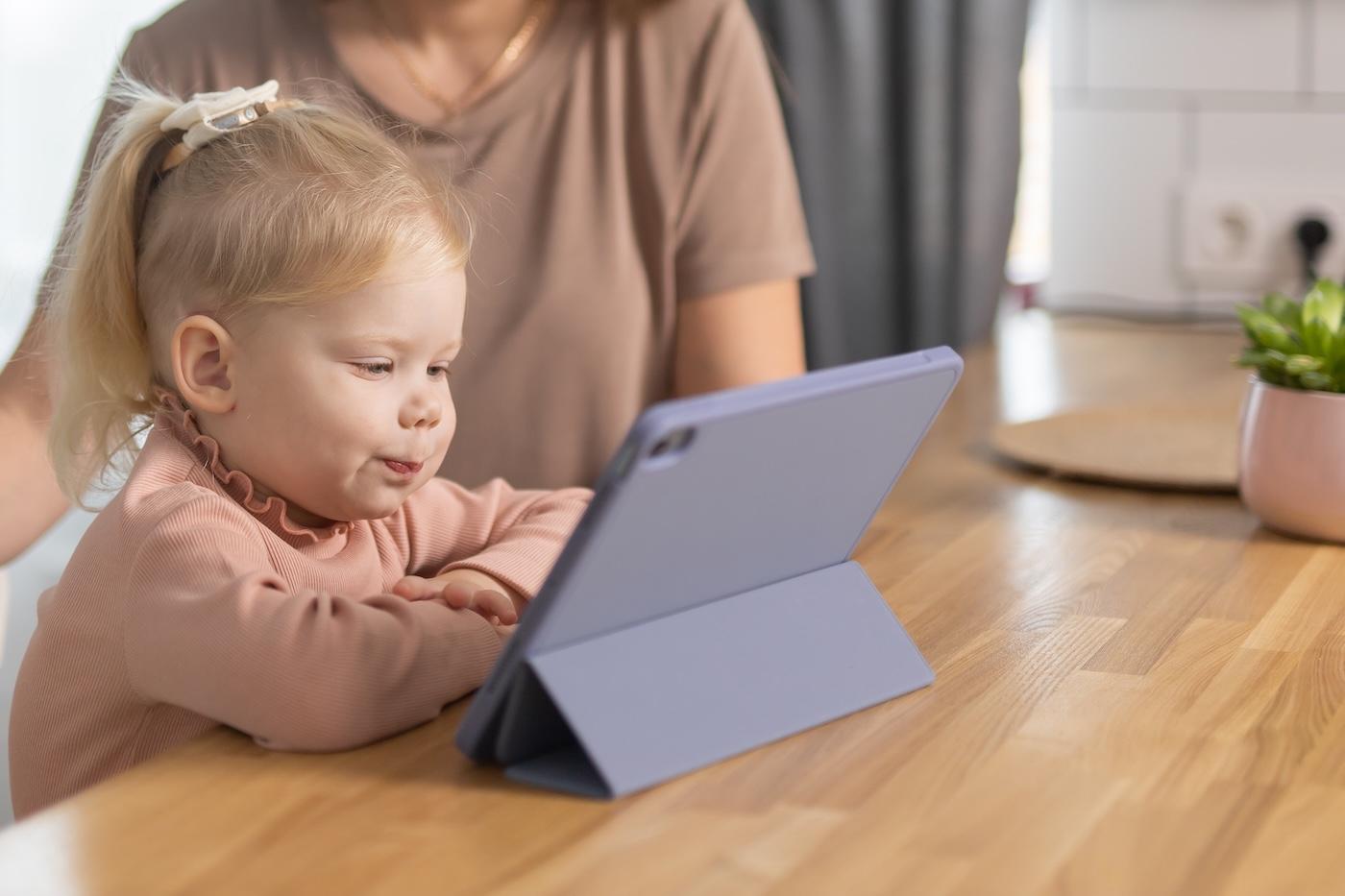TODDLER
How to Get Your Child Ready for Preschool or Kindergarten
When your tot was a chubby little babe curled in your arms, school probably seemed like a long way off. But now the big day is almost here!

Written by
Dr. Harvey Karp

When your tot was a chubby little babe curled in your arms, school probably seemed like a loooong way off. But now the big day is almost here! And as much as this new stage may make your head spin, starting preschool or kindergarten is often a major life shift to our little kiddos, too. Fortunately, there are a few things you can ease this transition and help smooth the move for your growing tykes. Here are a few ways to get your child ready for preschool or kindergarten.
Nail down your routines.
Routines and rituals make little kids feel safe and secure. In this time of BIG changes, they’ll feel comforted knowing that they can count on a few things to stay the same (for example: “We eat breakfast, then we brush our teeth, and then get our shoes out of the shoe basket.”) Routines are, of course, also a sanity-saver for busy parents…especially when you’re racing against the clock in the morning. In fact, it’s probably a good idea to practice your morning routine in its entirety a few days before you’re in a mad dash to get out the door.
While having a set morning routine may be a no-brainer, it’s smart to shore up your nighttime routine too. Getting a good night’s sleep will help make your child more focused, alert, and happy at school. So, stick to a regular bedtime, and get in the habit of winding down) at least 30 minutes before your child hits the hay. (Read more about toddler bedtime routines here.)
Offer options.
Your little friend doesn’t have a say in whether or not they go to school, or where they go to school…or in a whole lot of areas in their life, really! Letting them make some of the smaller decisions can go a long way to help them feel confident and in control. It fosters self-confidence by showing them that you respect their ability to make good decisions. (“Do you want use the blue lunchbox or the green lunchbox? Do you want an apple or a banana for your snack?”)
Teach your child self-help skills.
Rather than worrying about whether your tot knows their ABCs and 123s before they hop on that big yellow bus, focus on helping them master essential self-help skills, such as picking out their clothes the night before, putting on their shoes and jacket, using utensils, washing hands, picking up after themselves, and using the toilet. (Here are some tips to get potty training on track).
Plant seeds of kindness.
Your child’s social circle will get much wider once they start school! If they’ve spent most their lives surrounded only by Mom or Dad, getting used to sharing and taking turns may not exactly be second nature. Fortunately, you can begin to build a foundation of kindness and consideration at home. One fantastic way to teach character and manners is to “plant seeds of kindness.” Little kids tend to tune out our sermons (messages delivered to their mind’s “front door”) but they are fascinated by what they overhear us say or see us do (messages delivered to their mind’s “side door”). One nice way to give little “side door” messages is to make up little fairy tales…with a message. For example, do some little stories about a pony princess who triumphs by helping her schoolmates. Another of my favorite side-door techniques is to “catch others being good.” That is, when you see someone else demonstrating the kind of behavior you want to see in your child, notice it by commenting out loud…to yourself (without looking at your child). Of course, your child will overhear you, but won’t feel judged or manipulated by your comment. For example, “Hmmm….they waited so quietly people for their turn. I like it when people don’t push and shove in line”.
Role play about what to expect at school.
For a tyke who has never been to school, stepping into the classroom for the first time could feel a little like setting foot on a distant planet! You can, of course, talk to your child about what to expect, but role-playing is another way to sneak in the side door of your little one’s head. Role play—either yourself or you could use dolls and stuffed animals—what it might look like to join circle time the first time the teacher asks, to share a toy with a classmate, or to be a good listener when someone else is talking.
Read books about school.
Books are such a wonderful window to the world! In this instance, books about the first day of school can help your child understand what school will be like and banish first-day jitters.
Listen to your child’s worries.
Starting school is a big change, and it can be pretty scary for a little kid. If your tot is anxious about the big day, take time to listen to their fears. Of course, you don’t want to just brush off their concerns (no one likes their honest concerns to be brushed off), but also you don’t need to be in a rush to reassure your child that everything will be all right. Best is to validate their feelings—using Toddler-ese plus the Fast-Food Rule (it’s not just for tantrums!)— for a few sentences, before you offer your reassurance or thoughtful suggestions. Here are a few more tips on addressing toddler worries.
Remember, for little kids the start of school may be a bit scary and stressful. But, to be sure, it is the beginning of many years of exciting challenges, adventures and wonderful memories for you both!
More Preschooler Need-to-Knows:
- Meet SNOObie: Your Child’s New Classroom Buddy!
- How to Prepare Your Child for Preschool
- Podcasts Preschoolers Love
- How Do Kids Learn to Play Together?
Disclaimer: The information on our site is NOT medical advice for any specific person or condition. It is only meant as general information. If you have any medical questions and concerns about your child or yourself, please contact your health provider.
SHARE THIS ARTICLE
MOST LOVED
Sleepytime Sidekicks












